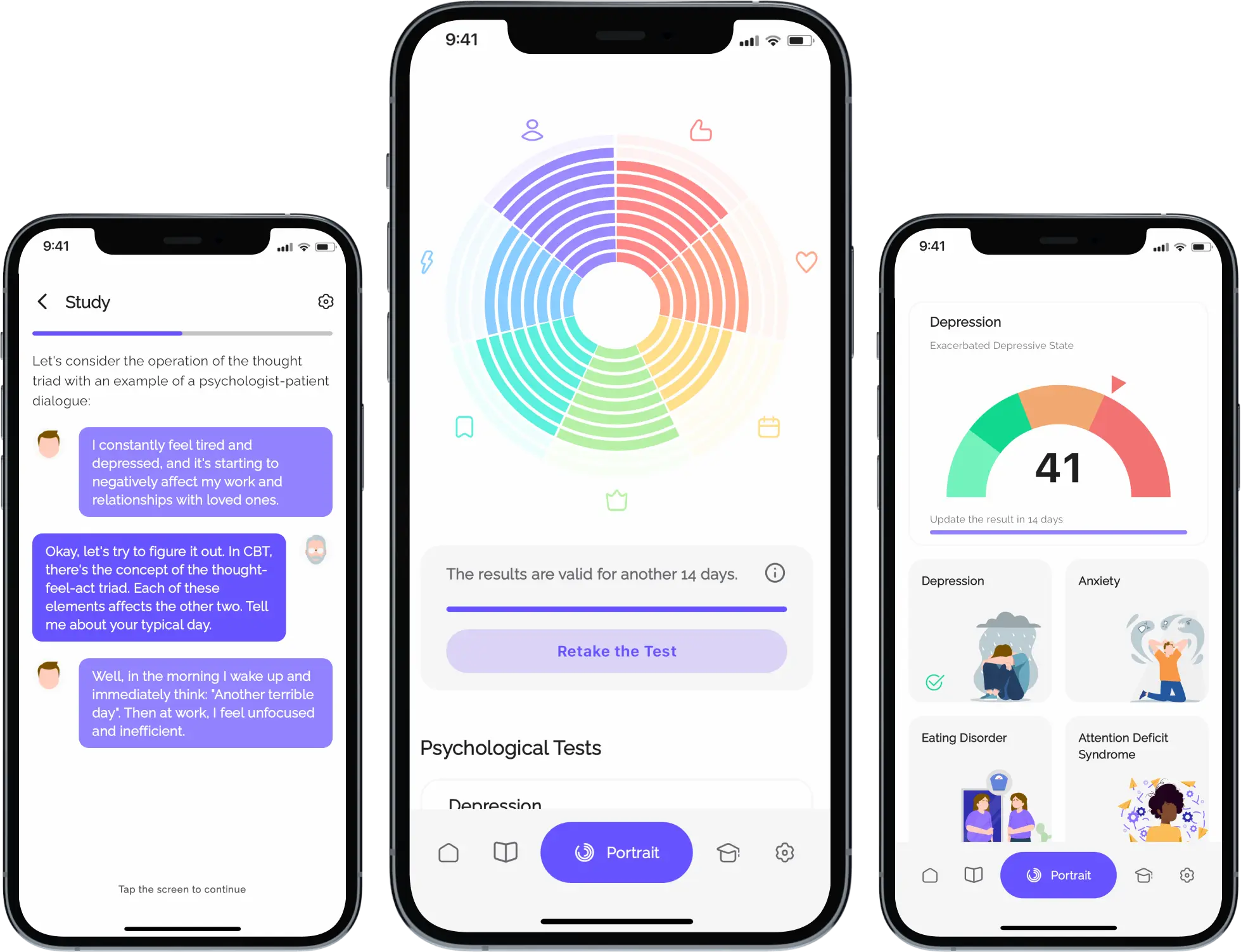
Depression – like a dark veil enveloping the soul and thoughts of many of us. Each year, this mental disorder strengthens its grip, invisibly penetrating people's lives, leaving behind a loss of strength, fading interests, pessimistic thoughts, feelings of alienation, sadness about the past, and anxiety about the future. It drags a person into a world devoid of joy and light.
If these lines resonate with your heart, chances are you have already encountered depression personally or through close people. This disorder is so widespread that it is sometimes compared to a "cold" among mental illnesses. Depression is a true epidemic of modern times, robbing life of meaning and joy, sometimes even threatening life itself.
However, not every sad state signifies depression. In subsequent chapters, we will learn to recognize this fine line.
Let's start with the definition. Depression (from Lat. depressio — suppression, oppression) is a mental disorder described by the World Health Organization as a state of despondency, loss of interest and ability to enjoy, feelings of guilt or low self-esteem, sleep and appetite disturbances, fatigue, and concentration problems.
Depression is a "multifaceted" disorder; it can be "smiling", can masquerade as an organic disease, and organic disorders, in turn, can dress up in the garb of depression.
Aaron Beck
It sounds grim, but there is good news: depression is treatable. Cognitive-behavioral therapy (CBT) represents a reliable and effective approach to managing this condition. By mastering it, you can learn to change your mood and cope with symptoms independently.
Numerous studies confirm the effectiveness of CBT. But we also want to emphasize the importance of self-help, which plays a key role in the recovery process, whether you are undergoing treatment with a specialist or not.
For example, research by Dr. Forrest Scogin and his colleagues at the University of Alabama showed that bibliotherapy – therapy through reading a good self-help book – can be as effective as traditional treatment.
More content in our app
You're only seeing a portion of the content. In the app, you'll find numerous interactive articles. Additionally, there are psychological tests to track your mood dynamics, a daily planner, an automatic thought journal, and much more!

In their experiment, participants who read David Burns' "Feeling Good" demonstrated significant improvements, comparable to the effects of full psychotherapy or taking antidepressants.
In this unique study, Dr. Forrest Scogin and his colleague Dr. Christine Jamieson introduced new understanding into the treatment of depression.
They divided participants suffering from severe depression into two groups. Participants in the first group, named "Immediate Bibliotherapy Group", were offered David Burns' "Feeling Good" to read over four weeks.
The second group, named "Delayed Bibliotherapy Group", was placed on a waiting list for treatment, waiting their turn during the first month of the experiment.
Patients from the "Delayed Bibliotherapy Group" played the role of a control group, ensuring that improvements in the "Immediate Bibliotherapy Group" did not simply occur over time.
Before the study began, all patients were asked to undergo two tests. The first was the Beck Depression Inventory, a time-tested self-assessment scale that patients complete without outside help. The second was the Hamilton Depression Scale, filled out with trained depression researchers.
After four weeks, the results of both groups were reassessed. There was significant improvement in the Immediate Bibliotherapy Group: average scores on the Beck and Hamilton scales fell to 10 or below, indicating a normalization of condition.
The data not only showed significant improvement in condition but also no relapses for three months after the experiment, with further improvements in results.
Meanwhile, the indicators in the "Delayed Bibliotherapy Group" remained the same, proving that the improvements in the first group were not merely the result of time. After the participants in the second group were also given the book, their condition improved in a similar manner.
Thus, the study demonstrates the significant potential of self-help in combating depression. The improvements were so noticeable that most study participants required no further treatment.
This was one of the first studies to confirm the effectiveness of self-help in treating depression, but far from the only one.
It is also worth noting the research of Scottish scientists, which opened a new page in understanding the treatment of depression. They discovered that self-help books turn out to be unexpectedly effective in combating this illness.
These conclusions were formed based on a carefully planned experiment involving more than 200 people suffering from mild to moderate depression.
Study participants were divided into two groups, each undergoing different treatment methods over several months. The first group relied exclusively on antidepressants, while the second delved into the world of bibliotherapy.
As it turned out, participants from the group that turned to reading specialized literature showed significantly more impressive results in their recovery than those who limited themselves to taking antidepressants.
The inspiring research, which scientists used as the basis for therapy, was built on the fundamental principles of cognitive-behavioral therapy (CBT).
This phenomenon of self-help, as it turned out, plays a key role on the path to freedom from depression. It was this thought that prompted us to create this section.
We want to give you the key to understanding what is happening in your life and offer tools that you can use to cope with it independently.
We will step by step share with you important information about depression, providing powerful tools and techniques that will give you the necessary skills you can apply on your own.
As a result, you will acquire skills that will give you the strength to break out of the deadlock of painful emotions.
Remember, after every storm comes a calm, the sky clears, and the sun rises again, illuminating everything around. In this moment, feelings of joy and relief arise, an unstoppable desire to live that is incomparable to anything else.
If you are currently struggling with depression, remember: change is not only possible, it is inevitable with the right approach, no matter how severe and hopeless your current circumstances may seem.








